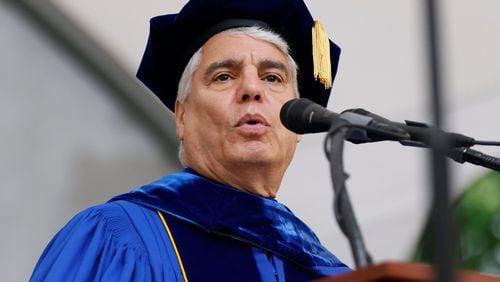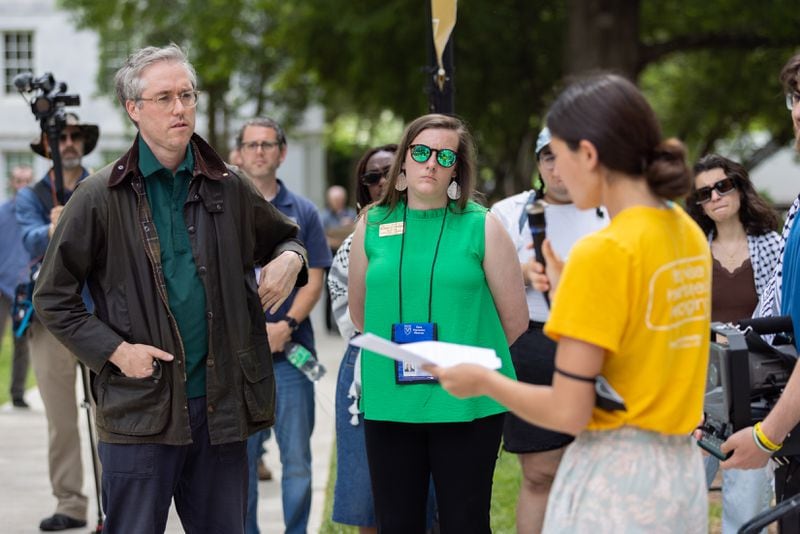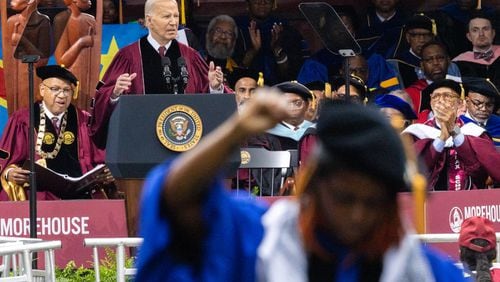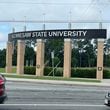Emory University’s undergraduate students voted in favor of a no confidence resolution of its president, Gregory L. Fenves, the school’s student government association announced Wednesday.
About 3,400 of Emory’s 8,100 undergraduate students voted on the referendum. Of those who voted, 2,499 voted in favor of the motion, 844 voted against it, and 58 students abstained.
The vote is nonbinding. But it is a troubling pronouncement for Emory’s leader.
Fenves has been criticized by some students and faculty for his initial response to an encampment set up by students on the campus a couple of weeks ago to call for a cease-fire in the Israel-Hamas war and to oppose plans to build an Atlanta public safety training center. Although protesters say the encampment was peaceful, police made several arrests and used chemical irritants to disperse the crowd.
Fenves originally said “highly organized, outside protesters” were responsible for the protests, but later walked those comments back. Fifteen of the 23 people arrested on April 25 were students.
The university said in a statement about the referendum “31% of the total undergraduate student body voted in favor of the motion. While we take any concerns expressed by members of our community seriously, Emory community members are sharing a wide range of perspectives that are not reflected in the motion passed by SGA.”
Credit: Arvin Temkar/AJC
Credit: Arvin Temkar/AJC
A day before the voting period opened, former student government association President Khegan Meyers said the results would signal “the community standard that students hold the president to” when it comes to police responses to student protests on campus.
“I think the message that a vote will send is about what expectations a president should have when they are looking to make decisions about outside police forces on our campus, use of force on our campus, about how expression is dealt with on our campus,” Meyers said.
Faculty members in the Emory College of Arts and Sciences on Friday overwhelmingly approved a nonbinding “no confidence” vote in Fenves, condemning the “violence” and the use of force on April 25 to break up the encampment. It’s the largest faculty group at the university.
On Monday, Fenves announced the university will move its commencement ceremonies from campus to the Gas South District in Duluth. Fenves said safety concerns led officials to move graduation-related ceremonies indoors to the complex, which includes the Gas South Arena and the Gas South Convention Center. The complex is 22 miles away from campus. Fenves acknowledged in a message Monday to the campus community the decision would be “deeply disappointing” to many.
Students at several campuses across the nation have organized various forms of war protests during commencement ceremonies in recent days, the latest phase of ongoing campus demonstrations that began about several weeks ago. The demonstrations have sparked concerns of antisemitism by several Jewish student organizations and elected officials.
On Tuesday, the White House announced efforts to protect Jewish students on college campuses. The initiatives include new guidance about providing examples of antisemitic discrimination, as well as other forms of hate, that could lead to investigations for federal civil rights violations. The U.S. State Department will also convene technology firms to identify best practices to address antisemitic content online.







